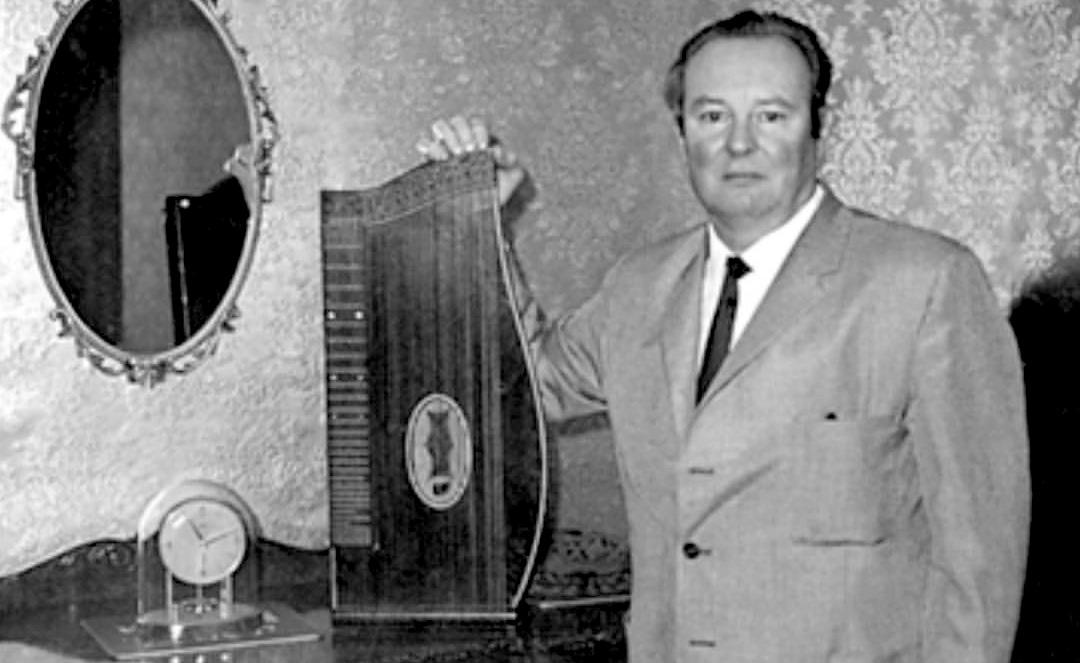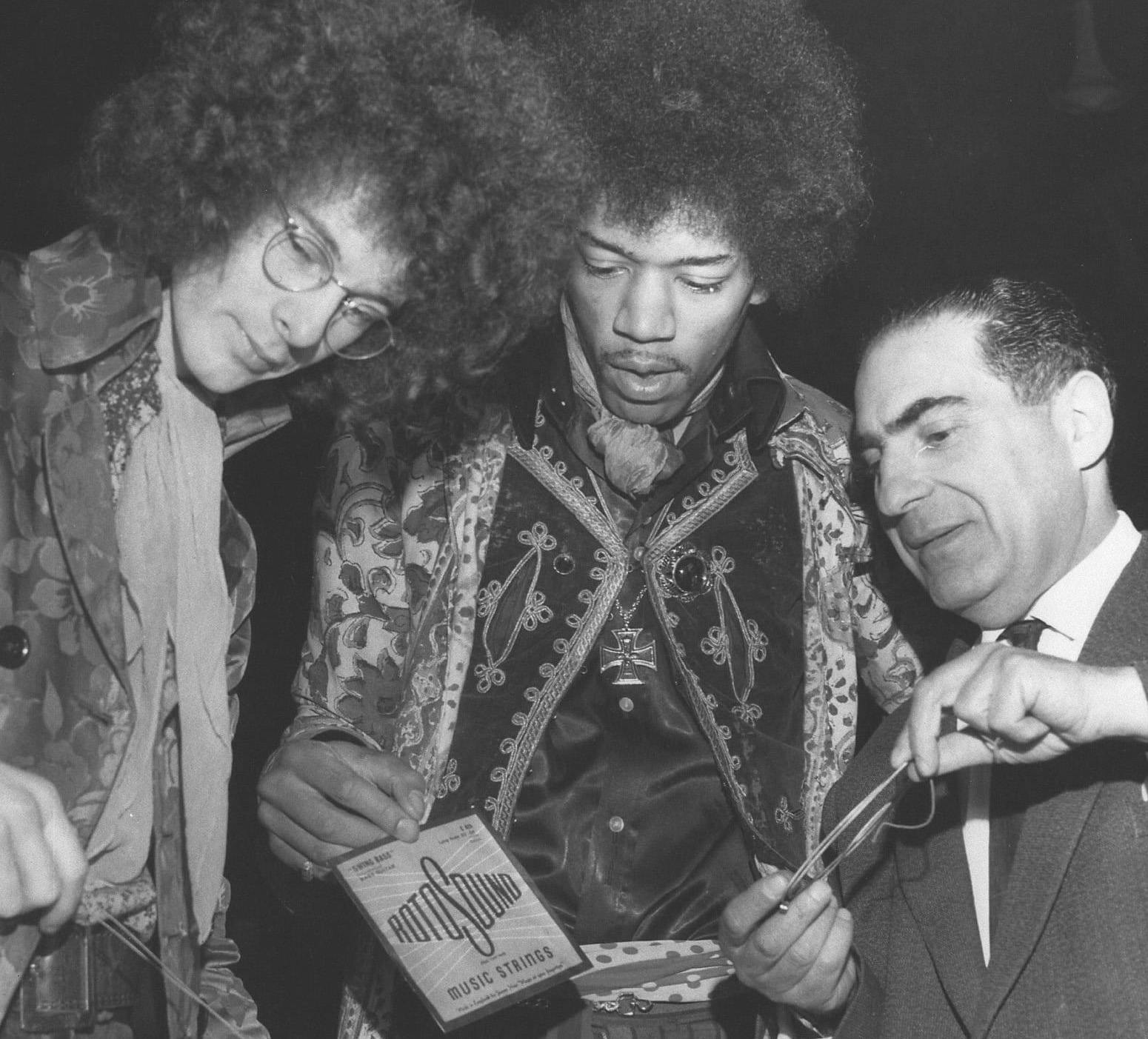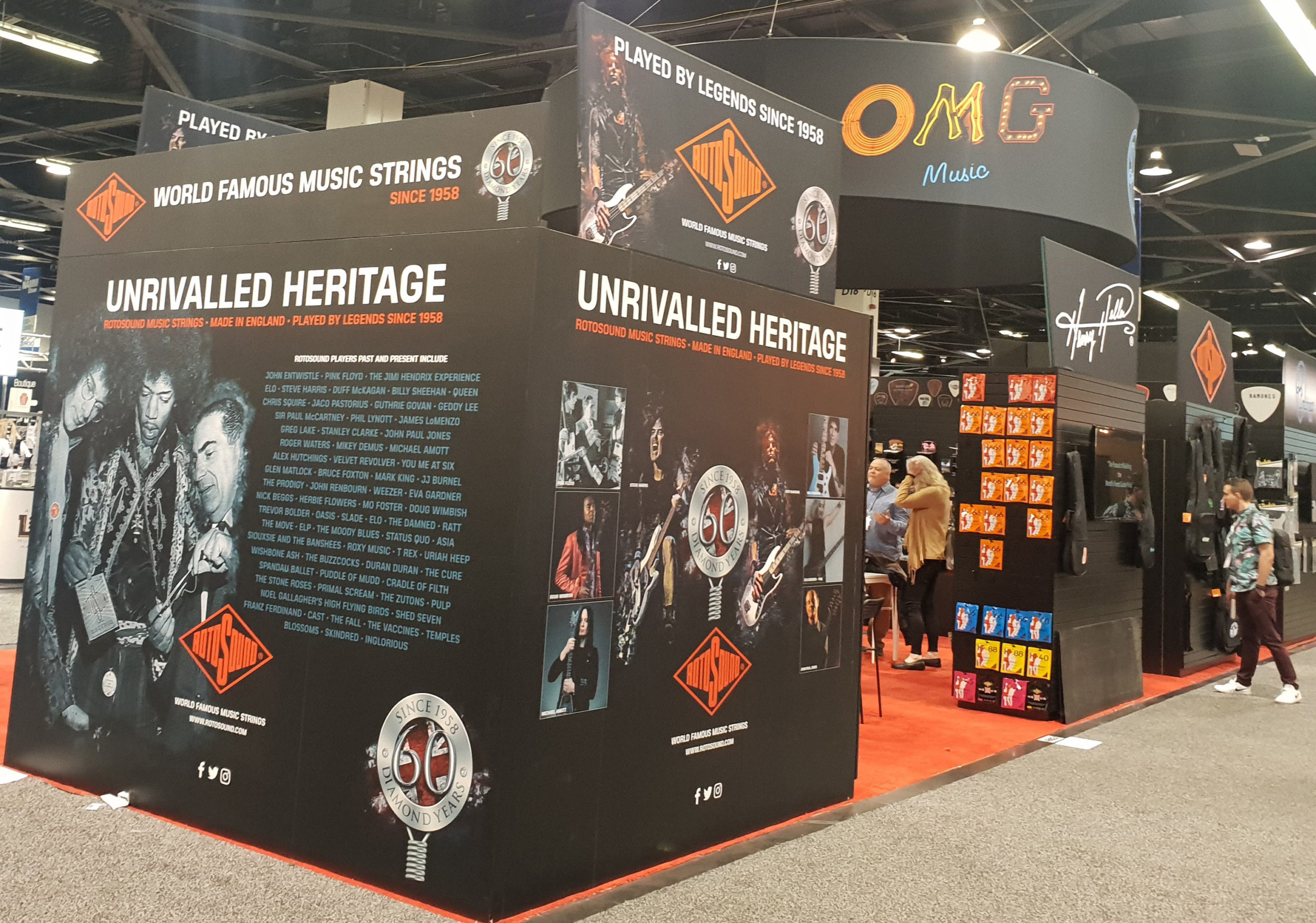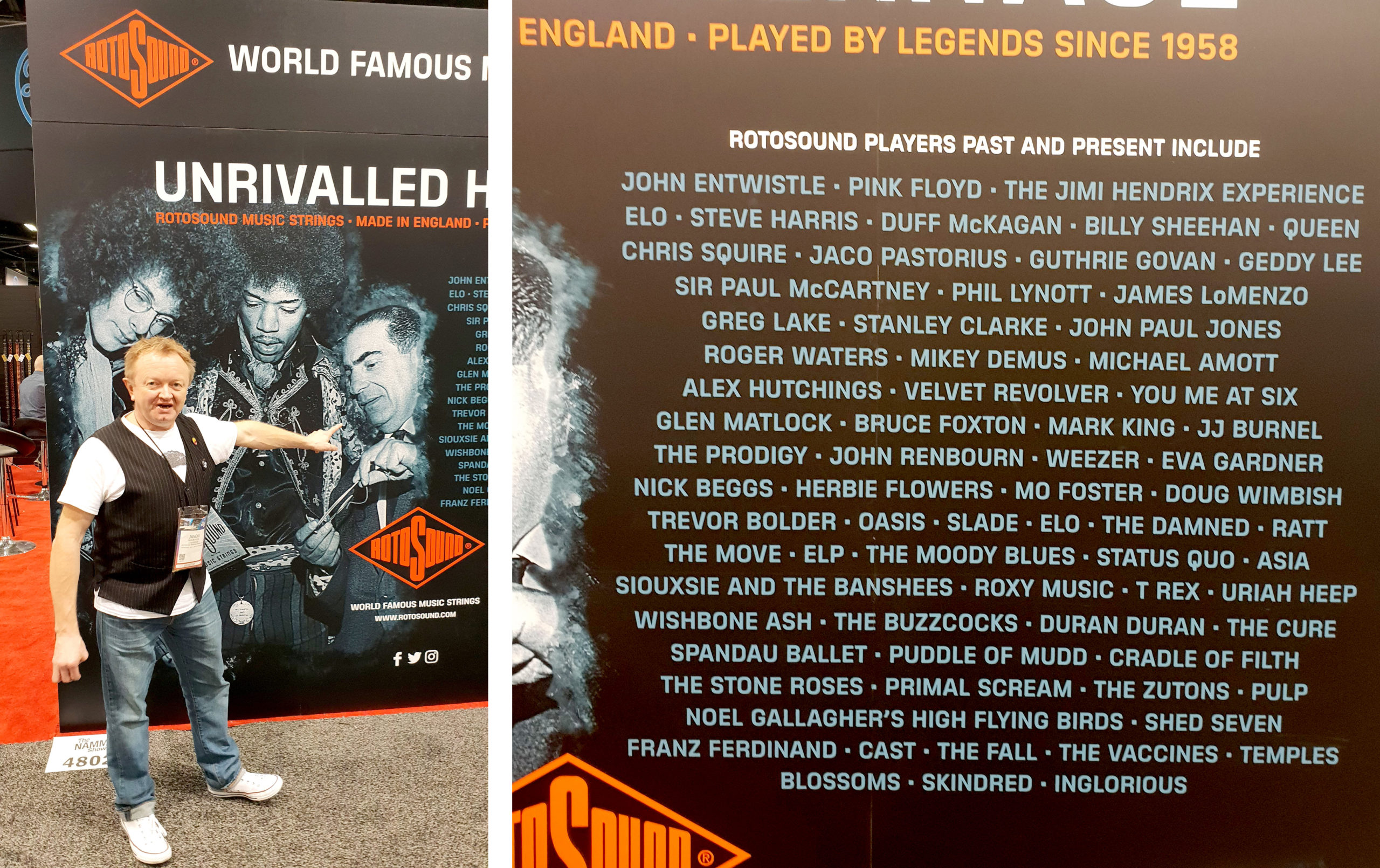Jimi Hendrix, Pink Floyd, Queen, Paul Mc Cartney … to name only a few, all used Rotosound strings for their instruments. Here we are now, sitting in the meeting room of the Rotosound booth at the most important music industry trade show in the world, the NAMM in Anaheim / Los Angeles, and I have the distinct privilege to interview the present owner of this prestigious company, Jason How, the son of founder James How. Before commenting on your recent Budapest experience, can you tell me a bit about the Rotosound history, going back to the beginnings?
The history of Rotosound, as far as I know, is that my dad went to see the film The Third Man featuring Anton Karas’s music in like 1952 or something around that time, and he was captivated by the music, which had the zither (a Central European folk instrument) in it. I think it was filmed in Austria, by Vienna or somewhere. It’s a spy movie, and if you haven’t seen it, you should, it’s really cool, and when you get it, the music gives you goose bumps — it’s the classic zither. Anyway, he really got off on that, as this was a few years after he was in the war and got back to the UK, and he went out and tried to find the zither so he could learn the instrument. And from what I remember him telling me is that he used to take zither lessons from this guy in North London, but he couldn’t afford to pay for them, so — since he was an engineer — he used to service the guy’s car in return for the lessons to play the zither. So that’s how that started.

James How with the zither that started him on the road to making guitar strings…. check out the history pages at www.rotosound.com
And then?
From then on, as he broke strings on the zither, he couldn’t find any to replace them, so he bought more zithers. He ended up with this stack of zithers, and he would take the strings off the new ones to keep the first zither with all the correct strings — as there are, I think, something like 30 different strings on a zither. But then he ended up with all these zithers that he bought, with no strings, so he thought he might as well go out and make some strings for them so he could sell them complete. So that is kind of how it started, and that was 1955. I have documents in the factory, of letters my dad wrote to the companies for the material: “I’m looking to start making strings and I need this wire…” and so on, and I have those dated around 1955. So that’s the history of the beginning of Rotosound, but it wasn’t called Rotosound until 1967. It was originally called Orchestral and Jazz Strings, then it was called Top Strings but he couldn’t register the word ‘top’, so then it was Rotop from the Latin word Roto for round, then it was Rotosound in 1967.

Was there any particular event that took place which led to all these iconic, legendary performers using those strings, like Jimi Hendrix or any of the other ones?
Yes, the only thing I can think about was that John Entwistle of the The Who bought some of my dad’s strings, but they weren’t quite right. So he called my dad up and he went down to Bexleyheath in south-east London in 1965, and he sat with him and my dad already made all these strings for him and he said “yeah, maybe we should do this and we should do that with them” and my dad listened. And the thing was that at the time, 1965, ’66, ’67, there was a lot of stuff happening in south-east London, and my dad asked John before one of the first Who tours: “can I tell people you’re using Rotosound strings?” And John said “yeah, that’s no problem, as long as you supply me with enough strings for the tour.” And I think at that time Jimi Hendrix was in London anyway, and you know, it was quite a close-knit group of musicians. The photos we have with Jimi Hendrix were taken in a town called Purley, south of Croydon, so I think that it was just word of mouth, and the fact that Hendrix was American and came to England to make himself famous — it was in that community that it happened.

Jimi Hendrix with Rotosound sales director Alan Marcuson on his left, and bassist Noel Redding on his right
So, let’s jump ahead in time, because the rest, as we know, is history. Recently you’ve been to Budapest, and you performed with your band Soda Prism, and you managed to meet quite a few people, and quite a few people met you within the Budapest music scene. What was your experience like, and what were your impressions?
Well, it’s just a really vibrant music scene and appreciative audiences, and the people working with us, like yourself, putting on the events, it’s somehow more of a big deal than in the UK. I can’t even say anything other than it was a great experience in quite a limited time, and I want to go back there, obviously, to promote Rotosound and to promote our band.
Well, we’re very happy to assist you on that, although we’re still trying to figure out what it is that’s so special about this music scene, because for us it’s just …
Normal, yeah …
…that’s right, yet we get all this positive feedback.
My initial reaction was when on my first night at Pótkulcs, Marci and you guys played and it was great, and I was thinking why is the focus always on US and UK music? Because when you travel like that you realize that actually there’s a lot of music and great musicians in other countries as well, so it was all positive. And we’d be very happy to support the events that you guys are doing.
Well, we couldn’t be more honored.
Editor’s note: Rotosound has now offered to supply the open mic community in Budapest with strings. Since nobody, until now, has ever thought about compensating open mic organizers for strings broken at events, this is more than appreciated, and we’ll be happy to add a Rotosound logo to our surfaces.
Soda Prism performing at Szimpla Kert in Budapest, December 13, 2019.

Rotosound’s booth at the 2020 NAMM.

Jason How at the 2020 NAMM show in front of the Rotosound booth, with the most famous users of these strings listed on its wall.